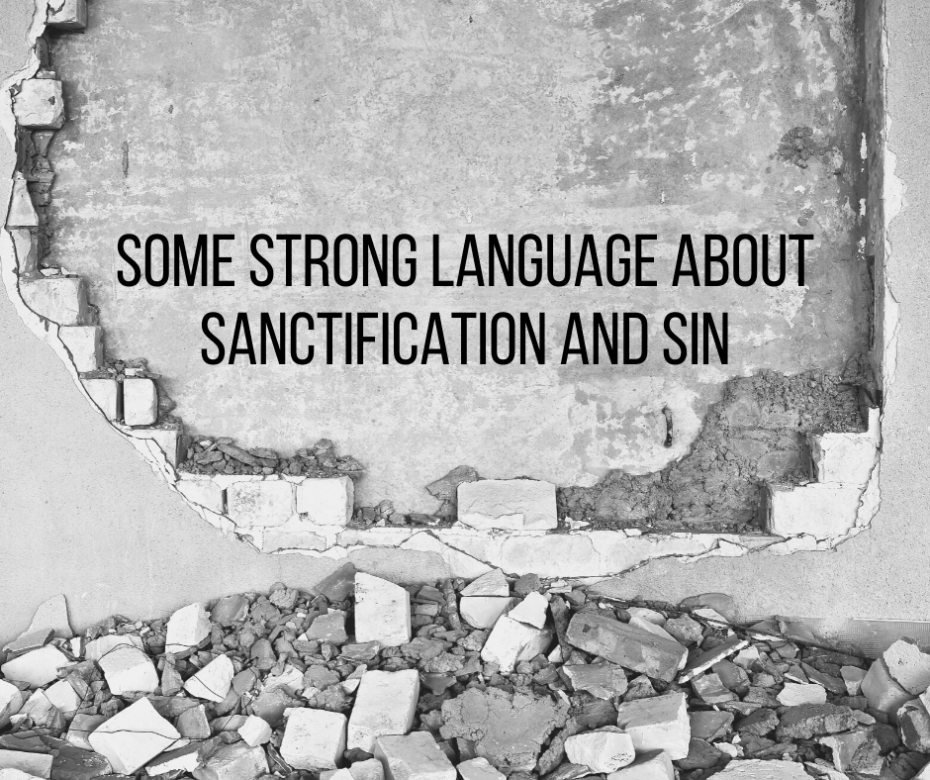What does it mean to be sanctified? What’s supposed to happen to the sin in your life? As I’ve been meditating on that subject—wondering to what extent Scripture describes sanctification as a process, or as an event, or as both—I noticed some of the verbs that Paul uses to describe what has happened, or what should happen, to the sin in your life.
- You should “put off” the old man (Eph 4:22). Theapotithēmi means to “lay aside, rid oneself,” as you would remove clothing.
- Your old man was “crucified” (Rom 6:6).
- Your body of sin should be “done away with” (Rom 6:6), katargeō, meaning, “to come to an end or to be no longer in existence, abolish, wipe out, set aside.”
- You were “set free” from sin (Rom 6:18), that is, eleutheroō,“to cause someone to be freed from domination.
- You are circumcised in the sense of “putting off” the body of the sins of the flesh (Col 2:9-11). BDAG notes the noun apekdusis only appears in Paul and means “removal, stripping off of clothes,” except Paul compares it to circumcision, not clothes, which even more emphatically likens it to the removal of a piece of flesh
- You are to be “cleansed” from sins (2 Tim 2:21). The verb ekkathairō means “to get rid of something unclean.
- You should “put to death” (nekroō) your members (Col 3:5), which BDAG defines as “to deaden or cause to cease completely.”
That’s strong language, is it not?
What does it mean?
At the very least, here’s a simple take-away: Christians should not play around with sin. The sin nature is not something to be coddled, appeased, ignored, or even merely suppressed. It has to be killed, crucified, cleansed, and cast off.


